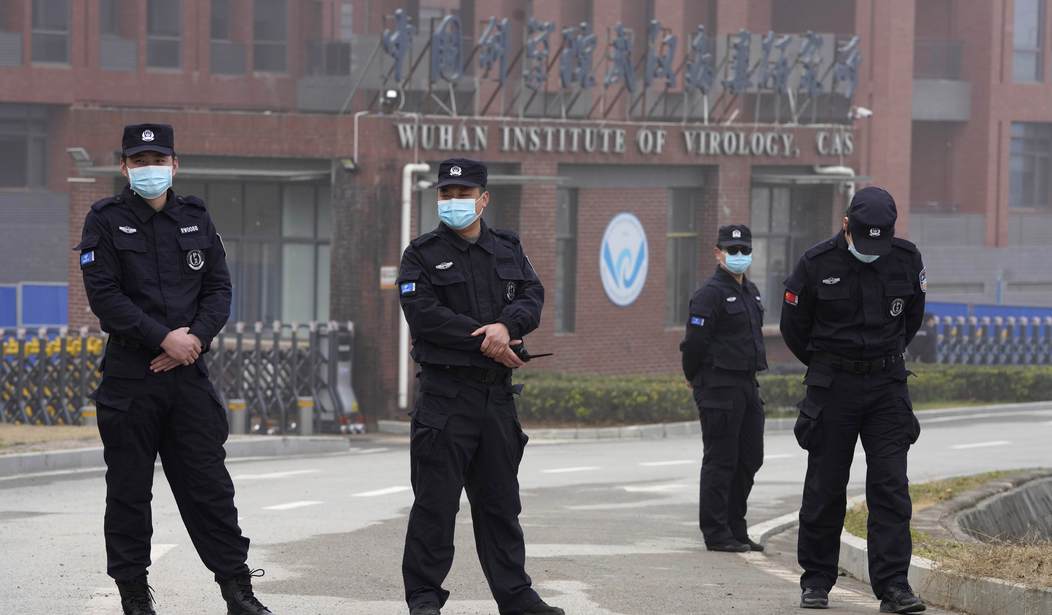The Inspector General for the Department of Health and Human Services has released a report which concludes both the National Institutes of Health and EcoHealth Alliance made mistakes in their oversight of grant money. Some of the grant money in question went to the Wuhan Institute of Virology to study bat coronaviruses.
The National Institutes of Health made significant errors in its oversight of grants to a nonprofit group that has come under fire from congressional Republicans for its research collaborations in China, an internal federal watchdog agency said on Wednesday.
The findings, outlined in a 64-page report describing missed deadlines, confusing protocols and misspent funds, reinforced concerns about the federal government’s system for monitoring research with potentially risky pathogens…
“It’s a damning indictment of N.I.H.,” said Lawrence O. Gostin, a public health law expert at Georgetown University who has been informally advising the White House on health security issues.
“This report really is the first truly independent and nonpartisan review of N.I.H. procedures with research on enhanced pathogens,” he said, “and it shows grave errors in following N.I.H.’s own rules and also in just a diligent monitoring and oversight that the public would expect.”
The report doesn’t delve into the gain of function research directly but does fault NIH for failing to get a timely report from EcoHealth about a viral study. The report was finally turned in two years late. NIH eventually concluded that study did result in some unexpected growth: [emphasis added]
EcoHealth’s Notice of Award for Year 5 of R01AI110964 was issued on June 18, 2018. It had a budget period of June 1, 2018, to May 31, 2019. The Notice of Award required a final progress report be submitted within 120 days of the budget period’s end date. Thus, EcoHealth should have submitted its progress report for Year 5 by the end of September 2019. We found evidence in the online system used to submit progress reports that EcoHealth initiated the progress report in July 2019; however, not until after NIH requested the progress report in July 2021 did EcoHealth submit the progress report on August 3, 2021, nearly 2 years late.
EcoHealth claimed that it had difficulty accessing the system used to submit progress reports, but we could not find evidence to support that claim. While we found that EcoHealth contacted NIH in late July 2019 in reference to the progress report, we did not find evidence that EcoHealth notified NIH about difficulty accessing the system used to submit progress reports. Furthermore, we found no evidence that NIH requested the progress report until July 2021. Due to late submission of the Year 5 progress report, EcoHealth was not in compliance with the report submission deadlines, which contributed to NIH not being made aware of the research results and not having information needed to understand the nature of research conducted in a timely manner.
When the NIH finally did request that report (2 years later) EcoHealth found that it could not get the information it needed from the WIV.
On November 5, 2021, NIH requested that EcoHealth provide certain scientific documentation from WIV substantiating research covering EcoHealth’s Year 4 (project period June 1, 2017, to May 31, 2018) and Year 5 (project period June 1, 2018, to May 31, 2019) progress reports to gain insights into the nature of the experiments that were performed. In turn, EcoHealth requested the information from WIV. However, based on records reviewed, we did not see evidence that EcoHealth obtained the scientific documentation. EcoHealth officials confirmed to us that WIV had not been responsive to its request to provide the scientific documentation and indicated it was unlikely to receive the requested information. As a result, EcoHealth has been unable to comply with NIH’s request on this matter. In a discussion of this specific matter with NIH’s Deputy Director for Extramural Research, NIH acknowledged to OIG that WIV may never provide EcoHealth with the requested documentation.
Part of the agreement made in order to get these government grants is that the groups who receive the money must provide documents when NIH asks. That same rule applies to any sub grantees like the Wuhan Institute. So the fact that they would not and probably never will turn over the requested documents is a violation of the agreement.
There’s more to the report but it mostly seems to fault EcoHealth and NIH for sloppy bookkeeping and avoids the deeper questions about the type of research it was funding in China. Among other things, the report finds that EcoHealth overcharged the government for a series of things totaling $89,171. But EcoHealth “disagreed with the OIG interpretation of Federal requirements for some items of cost and is seeking clarification from NIH.”







Join the conversation as a VIP Member